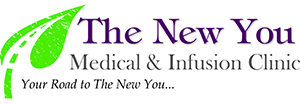Reactive Airway Disease Treatment in Watauga - Fort Worth, TX
![Reactive Airway Disease Treatment in Watauga - Fort Worth, [[state]](/assets/images/pages/reactive-airway-disease-treatment.jpg)
Understanding Reactive Airway Disease
Reactive Airway Disease (RAD) is a condition in which the airways (or bronchi) are highly sensitive to common triggers such as pet dander , pollen, or dust. The term “reactive airway disease” can be used interchangeably with “asthma”, but is more commonly used when a number of symptoms have been clearly identified and a diagnosis is pending. Because of this, the term is often used to describe symptoms in children. During an episode of reactive airway disease, the muscles near the bronchi contract and the mucous membranes swell. This narrows the airway and leads to symptoms similar to asthma.
The severity of each episode and the sensitivity to potential triggers often varies from case to case. Children with reactive airway disease are often limited in the amount of time they can safely spend outside or engaged in physical activity. It is important to detect and treat reactive airway disease early, as episodes tend to gradually increase in their severity.
Warning Signs of a RAD Episode
- Shortness of breath
- Abnormal (desperate) breathing
- Mild wheezing
- Coughing
- Rapid heartbeat
A parent may be able to sense something is wrong without these telltale symptoms, noticing paleness, irritability, or changes in certain behaviors.
Treating Reactive Airway Disease
There are a few ways for reactive airway disease to be diagnosed. Mucous samples, chest X-rays, and blood tests are all common diagnostic tools. A pulse oximeter (which measures blood oxygen levels) and spirometer (which gauges your child's breathing strength) may also be used.
The identification of reactive airway disease doesn't typically lead to a diagnosis of the disease itself, but rather a specific respiratory condition such as asthma. Corticosteroids are often prescribed for opening the air passages to make breathing less difficult. An inhaler or nebulizer are also common treatment options. Your child may also be prescribed long- or short-acting bronchodilators which open the airways to treat symptoms in the long-term or short-term respectively.
Parent's Guide to Reactive Airway Disease
There are a number of actions you can take as a parent to detect, treat, or minimize the symptoms of reactive airway disease. These include eliminating or avoiding common triggers, keeping your child away from cigarette smoke, and preventing the spread of illness at home. Breastfeeding during infancy may also reduce the risk of developing reactive airway disease.
Scheduling frequent checkups and strictly following a treatment plan are both important in making sure your child's symptoms don't worsen or become life-threatening. Seek immediate medical attention or call 911 if your child's symptoms appear to be significantly limiting their breathing. It is always better to be safe than sorry when breathing is restricted. Request more information about reactive airway disease today. Call (817) 203-2760 or contact The New You Medical & Infusion Clinic online.
The New You Medical & Infusion Clinic
Address
100 Grapevine HwyHurst, TX 76054
(817) 203-2760
https://www.newyoumedclinic.com/
Hours
Mon:
10:00 am - 6:00 pm
Tue:
10:00 am - 6:00 pm
Wed:
10:00 am - 6:00 pm
Thu:
10:00 am - 6:00 pm
Fri:
Closed
Sat:
Closed
Sun:
Closed

